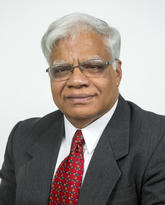Enhanced Oil Recovery Methods for Conventional Reservoirs - a Life Line for an Old and Tired Reservoir?
Disciplines: Reservoir
Course Description
This course offers an overview of enhanced oil recovery (EOR) processes with particular emphasis on issues relevant to field applications. This will provide technical professionals with an understanding of the following topics:
1-day Topics:
- EOR/IOR - What are they?
- Size of the Prize - Why must we consider it?
- Screening for EOR - Timing: When is the right time for implementation? What options do we have? What tools do we need? Can we do it all?
- Waterflooding and Chemical Flooding
- Gas flooding - Hydrocarbon, CO2, Air, and N2
- EOR in Naturally-Fractured Reservoirs
- Critical Review and Identification of Broader Issues and Summary
- Case Histories and Exercises
3-day Topics:
- Smart Waterflooding Options for Select Reservoirs
- Chemical Flooding Processes
- Gas Flooding Processes
- Thermal Methods
- Horizontal Wells for EOR
- Problems of Asphaltene Precipitation During EOR and Certain HSE Issues
- Summary Review and Identification of Broader Issues through Interactive Discussions
Learning Level
1-day: Intermediate
3-day: Intermediate to Advanced
Course Length
1 or 3 Days
Why Attend
Get an overview of EOR and IOR, explore your options and tolls for screening and the best time for implementation.
The 3-day course will also help participants:
- Develop a screening approach to select and link appropriate EOR processes to particular candidate reservoirs
- Recognize importance of timing of implementation based on reservoir engineering considerations
- Identify key decision/problem issues with regard to feasibility of the EOR processes
- Gain a general understanding of the EOR principles and various process mechanisms
Who Attends
This course is intended for reservoir engineers, production engineers, geoscientists and management personnel who are involved in the screening and planning for EOR/IOR applications in the near future. New recruits should also benefit from this course. It may also interest experienced professionals as a refresher course.
Special Requirements
It is advisable for participants to bring a computing device for simple calculations for the class room exercises performed during the course.
CEUs
0.8 or 2.4 CEUs (Continuing Education Units) are awarded for this 1- or 3-day course.
Additional Resources
This course has supplemental books located in our SPE Bookstore entitled Fundamentals of Enhanced Oil Recovery and Enhanced Oil Recovery, Second Edition. Please check out these valuable resources!
Cancellation Policy
All cancellations must be received no later than 14 days prior to the course start date. Cancellations made after the 14-day window will not be refunded. Refunds will not be given due to no show situations.
Training sessions attached to SPE conferences and workshops follow the cancellation policies stated on the event information page. Please check that page for specific cancellation information.
SPE reserves the right to cancel or re-schedule courses at will. Notification of changes will be made as quickly as possible; please keep this in mind when arranging travel, as SPE is not responsible for any fees charged for cancelling or changing travel arrangements.
We reserve the right to substitute course instructors as necessary.
Instructor

Hemanta Sarma is a Professor of Oil and Gas Engineering at the University of Calgary. More recently, he was the chairman and professor of the Petroleum Engineering Department at the Petroleum Institute, Abu Dhabi, 2009-2014. He is also an Honorary Adjunct Professor in Petroleum Engineering at the University of Adelaide where he had held a Professorship and the Reg Sprigg Chair in Petroleum Engineering in the Australian School of Petroleum (ASP) from 2002-2009. He is the founding Director of the Centre for Improved Petroleum Recovery (CIPR) in the ASP and was a Research Project Leader (2003-2006) for CO2 sequestration through enhanced petroleum recovery and enhanced coal-bed methane recovery in the CO2 CRC, a major Australian Cooperative Research Centre for Greenhouse Gas Technologies. In addition, he has been a consultant to a number of Australian petroleum companies in the areas of reservoir engineering and EOR.
Previously, Dr. Sarma was a Senior Staff Reservoir Engineer with the Alberta Research Council, Canada and an Invited Research Advisor at the Technology Research Center of Japan National Oil Corporation where he participated in domestic and international R&D projects and field pilots. He has published extensively and offered several specialized courses on EOR and reservoir engineering.
Dr. Sarma holds a BTech. (Honours) in petroleum engineering from the Indian School of Mines, an M.Sc. in chemical engineering (specialization: reservoir engineering) from University of Calgary, and a Ph.D. in petroleum engineering from University of Alberta. A recipient of 2011 Outstanding Associate Editor of SPE Reservoir Evaluation and Engineering Journal and SPE Distinguished Membership in 2009, he has been an active SPE member and has served on several technical program committees, including SPE South Australian Executive Committee leading its Continuing Education Program. He was a member of SPE’s Distinguished Achievement Award for Petroleum Engineering Faculty Award Committee in 2006 and the 2008-09 Chair.
In addition, Dr. Sarma served as an Associate Editor of SPE Reservoir Evaluation and Engineering Journal during 2007-2013 and currently serves as a Technical Editor for the Journal. Prior to that, he led an SPE-wide academic taskforce looking at improving the quality of the Journal. He chaired the 2014 SPE International’s DeGolyer and Distinguished Service Award Committees, 2015 Distinguished Service Award Committee, and was a member of SPE’s International Award Committee Task Force. Earlier, he served in the Editorial Review Board of Journal of Canadian Petroleum Technology.
Prof. Sarma is a 2008 recipent of The Australian Learning and Teaching Council Citation for Outstanding Contribution to Student Learning awarded by the Hon. Julia Gillard, Australian Deputy Prime Minister and Education Minster for “initiating students into the profession of Petroleum Engineering while interacting with them to secure their welfare as individuals and success as scholars.” He also received a 2006 Excellence in Teaching Prize of the Faculty of Engineering, Computer and Mathematical Sciences of the University of Adelaide.
